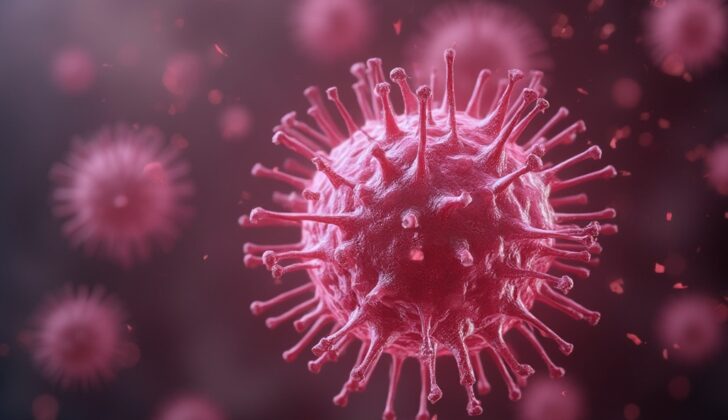Cancer is a word no one wants to hear, and yet millions of people face it every year. Thankfully, science is advancing rapidly, and one of the most exciting developments in recent years is immunotherapy—a treatment that uses the body’s own defense system to fight cancer.
This article will help you understand how immunotherapy works, the different types, its benefits and risks, and why it’s such a game-changer in modern cancer treatment.
What Is Immunotherapy?
Immunotherapy is a type of biological therapy. It uses substances made from living organisms (including your own body) to treat disease. In cancer treatment, immunotherapy helps the immune system recognize, target, and destroy cancer cells.
Your immune system is already designed to protect you from infections and diseases. But sometimes, cancer can find ways to hide from immune cells, or even turn off the body’s defense mechanisms. Immunotherapy works by either boosting the immune response or removing the cancer’s ability to stay hidden.
How Does the Immune System Normally Work?
To understand how immunotherapy helps, it’s helpful to know a little about how the immune system works.
The immune system is made up of:
-
White blood cells (like T-cells and B-cells)
-
Lymph nodes
-
Organs and tissues (like the spleen and bone marrow)
These parts work together to identify and destroy harmful invaders, like bacteria, viruses, and abnormal cells—including some cancer cells. But cancer is sneaky. It can:
-
Produce signals that tell immune cells to back off
-
Hide its identity by disguising itself as healthy tissue
-
Create an environment that’s too harsh for immune cells to survive
That’s where immunotherapy steps in.
Types of Immunotherapy for Cancer
There are several types of immunotherapy used to treat cancer. Each works in a different way, but all share the goal of helping your immune system recognize and destroy cancer cells more effectively.
1. Checkpoint Inhibitors
Cancer sometimes uses “checkpoints”—natural brakes in the immune system—to avoid being attacked. Checkpoint inhibitors are drugs that block these checkpoints, freeing the immune system to do its job.
Example checkpoint inhibitors:
-
PD-1/PD-L1 inhibitors (e.g., pembrolizumab, nivolumab)
-
CTLA-4 inhibitors (e.g., ipilimumab)
These drugs have shown success in treating melanoma, lung cancer, kidney cancer, and more.
2. CAR T-Cell Therapy
CAR stands for chimeric antigen receptor. In this therapy, doctors take a patient’s own T-cells (a type of white blood cell), genetically modify them in a lab to target cancer, and then put them back into the body.
CAR T-cell therapy has shown powerful results in some blood cancers, like leukemia and lymphoma.
3. Cancer Vaccines
Just like vaccines that protect against viruses, cancer vaccines train the immune system to attack cancer cells. Some cancer vaccines prevent cancer (like the HPV vaccine), while others treat existing cancer by triggering an immune response.
4. Monoclonal Antibodies
These are lab-made immune proteins that can bind to specific targets on cancer cells. Some monoclonal antibodies mark cancer cells so the immune system can destroy them more easily, while others carry drugs directly to cancer cells.
5. Cytokine Therapy
Cytokines are signaling proteins that help immune cells communicate. In cytokine therapy, synthetic versions (like interleukins and interferons) are used to boost the overall activity of the immune system.
When Is Immunotherapy Used?
Immunotherapy can be used in several ways:
-
As a standalone treatment (especially for cancers like melanoma and non-small cell lung cancer)
-
In combination with chemotherapy or radiation to enhance effectiveness
-
Before or after surgery to reduce risk of recurrence
Doctors choose immunotherapy based on the type and stage of cancer, genetic markers, and the patient’s overall health.
Benefits of Immunotherapy
-
✅ Targets cancer precisely – Especially compared to chemotherapy, which affects healthy and cancerous cells alike.
-
✅ Fewer long-term side effects – Some patients experience less toxicity.
-
✅ Potential for long-lasting protection – The immune system may “remember” cancer cells and prevent future recurrence.
-
✅ Effective in cases where other treatments have failed – Some advanced cancers respond to immunotherapy after not responding to standard treatments.
Challenges and Side Effects
While immunotherapy offers great promise, it’s not without risks.
Possible Side Effects:
-
Immune system overactivity, causing it to attack healthy tissues (leading to inflammation in organs like lungs, liver, or colon)
-
Fatigue, fever, nausea, rash
-
Swelling or pain at the injection site
Most side effects are manageable, and doctors monitor patients closely during treatment.
Other Challenges:
-
Not all cancers respond to immunotherapy
-
Can be expensive
-
May take longer to see results compared to other treatments
Who Might Benefit from Immunotherapy?
Immunotherapy is used to treat a wide range of cancers, including:
-
Melanoma
-
Lung cancer
-
Kidney cancer
-
Head and neck cancers
-
Bladder cancer
-
Certain types of leukemia and lymphoma
Genetic testing and biomarkers (like PD-L1 levels) help doctors determine if a patient is likely to benefit from certain immunotherapies.
The Future of Immunotherapy
Research continues to push the boundaries of what immunotherapy can do. Scientists are exploring:
-
New combinations of immunotherapy with other treatments
-
Personalized cancer vaccines
-
Biomarkers to predict who will respond best
-
Immunotherapy for solid tumors like breast or pancreatic cancer
As clinical trials expand, more people will have access to these innovative treatments.
Conclusion: Hope on the Horizon
Immunotherapy represents one of the most promising breakthroughs in cancer care. By helping the body recognize and attack cancer cells, it offers new hope—especially for those with advanced or treatment-resistant cancers.
If you or a loved one is facing cancer, talk with your healthcare team about whether immunotherapy might be an option. With more targeted treatments and fewer side effects for many, the future of cancer care is brighter than ever.












